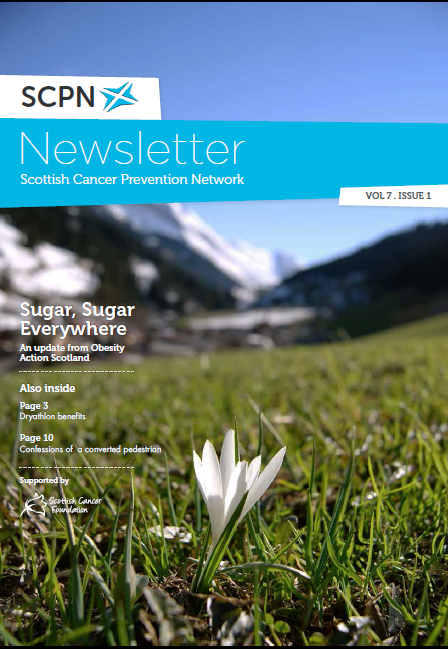
Dryathlon benefits

14 Jan 16 |
January is with us and many of you will be taking part in a month of abstinence from alcohol for a variety of reasons. Whether it is to give yourself time to recover after the festive period, give your wallet a rest or for health reasons you will undoubtedly be doing your body (and mind!) some good.
Current recommendations are for women to drink no more than two drinks a day and men three but even one drink (> 10g alcohol) can start to increase the risk of postmenopausal breast cancer and bowel cancer risk starts to increase at > two drinks a day for women and three for men.
Participants in Alcohol Concern’s Dry January, CRUK’s Dryathlon or Macmillan’s Go Sober for October often report:
- weight loss
- improved sleep
- more energy, clearer skin
There is little published in the literature about campaigns promoting an alcohol free month. Alcohol Concern cite a case study in which the Public Health Directorate in Sefton evaluated Dryathlon activity in their area using the Healthy Sefton phone line service which collected demographic and alcohol use info from a sample of 190 individuals who had been engaged in Alcohol Awareness Week. Around 78% of participants reported successful completion of a month without alcohol (with isolated lapses of drinking relating to a specific social occasion). The challenge itself, feeling healthier and reduced calorie intake were the main motivators cited. Almost half the participants felt no different as a result of giving up alcohol, but feeling healthier, having more energy and sleeping better were common experiences amongst the others. In addition around two thirds felt it had made them think differently about their alcohol consumption, and considered permanently cutting down quantity and frequency of consumption.
A small unpublished study of 10 journalists who went dry during January 2014 reported a 40% reduction in liver fat, 3kg weight loss, reduced cholesterol and lower glucose levels. As a follow up to this study, researchers at the Royal Free London and UCL conducted a larger study in January 2015 in which 94 participants in Dry January underwent blood tests for insulin resistance and other known markers of Non Alcoholic Fatty Liver Disease (NAFLD), a liver scan and completed a lifestyle survey. None of the participants were dependent on alcohol or already had existing liver disease. In the data analysis adjustments were made for demographic/lifestyle factors. Preliminary findings presented at the annual meeting of the American Association for the Study of Liver Diseases in November 2015 reported significant reductions in blood pressure and cholesterol levels, and an improvement in glucose and insulin resistance. Researchers concluded that even short-term abstinence has a significant effect on reducing the risk of developing NAFLD in healthy individuals.
Further research is required to establish how durable these benefits are, beyond the one month of abstinence and importantly whether people compensate by drinking more after the challenges has been completed.
Listen to a BBC Radio 4 Inside Health interview with researchers.
STOP PRESS
New UK Alcohol Guidelines are out for consultation.
We welcome the note that drinking any amount of alcohol increases risk of cancer of the breast, mouth and throat but disappointed that the upper guideline for women is higher than that recommended by the European Code Against Cancer.
The consultation can be found here.

The SCPN Newsletter: Volume 7, Issue 1
In our first issue of 2016, an update from Obesity Action Scotland on sugar, the benefits of Dryathlon and the confessions of a pedestrian, as well as the usual breakdown of cancer prevention research and news from the Scottish Cancer Prevention Network.